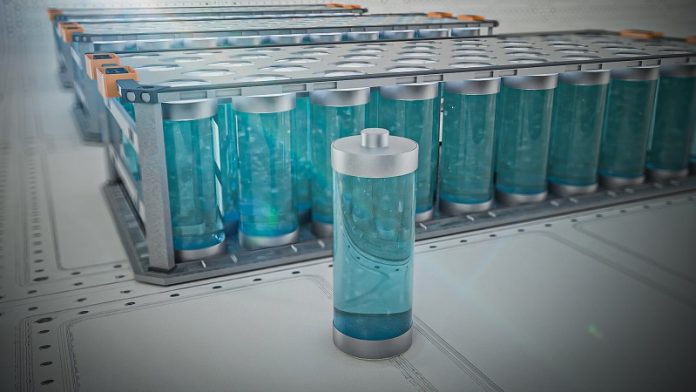
Researchers at King Abdullah University of Science and Technology (KAUST) have made an exciting discovery that could help make safer, cheaper, and longer-lasting batteries using water.
These so-called “aqueous batteries” are being developed as a more environmentally friendly option for storing energy from sources like solar or wind power.
The new research, published in Science Advances, shows that a simple, affordable salt—zinc sulfate—can make these batteries last more than ten times longer.
The team found that one of the biggest problems with water-based batteries lies in how water behaves inside them.
In particular, some water molecules—called “free water”—are not tightly bonded to other molecules.
Because of this, they’re more reactive and can take part in unwanted chemical reactions, especially at the battery’s anode (the part of the battery where energy is stored and released). These reactions slowly damage the anode, shortening the battery’s lifespan and reducing performance.
Professor Husam Alshareef, who leads the research team and directs the KAUST Center of Excellence for Renewable Energy and Storage Technologies (CREST), explained that this free water is a key reason why aqueous batteries haven’t been as successful as hoped.
But his team discovered that sulfate ions—found in zinc sulfate and other sulfate salts—can solve the problem by acting like “water glue.” These ions help stabilize the water molecules, preventing them from reacting in harmful ways.
By reducing the amount of free water, the sulfate ions stop many of the destructive chemical reactions that normally damage the battery. As a result, the battery lasts much longer and works more efficiently.
What makes this solution especially promising is how practical it is. Sulfate salts like zinc sulfate are cheap, easy to find, and safe to use.
According to research scientist Yunpei Zhu, who did most of the lab work, this makes the solution not just scientifically sound but also economically realistic.
While most of the study focused on zinc-based batteries, early tests suggest the same sulfate effect could work with other metal-based aqueous batteries. This means the KAUST team’s discovery could be used across many different battery types.
Aqueous batteries are expected to become a major player in the energy storage industry, with their market size projected to surpass $10 billion by 2030.
Unlike lithium batteries, which carry risks of fire and rely on limited raw materials, water-based batteries are safer and more sustainable.
This new breakthrough brings us a big step closer to making them a reliable part of our clean energy future.



